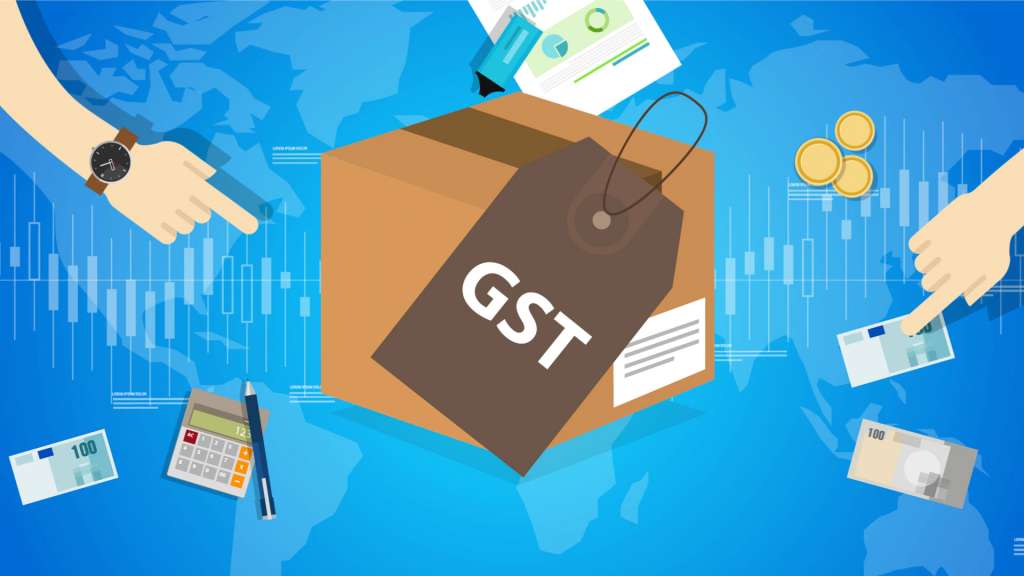The transporters in India should carry an e-Way bill under GST when they are moving goods to one place from another place when some particular conditions are contented. For generating e-way bill GST Registration is required
e-Way Bill- What is it?
e-Way bill is an electronic bill which is important for the movement of goods which to be generated on the e-Way bill portal. People who are GST registered cannot move goods exceeding the value of Rs. 50,000 (Single invoice/ delivery challan/bill) in a vehicle not having an e-Way bill. One can get an e-Way bill generated from the website ewaybillgst.gov.in. An e-Way bill can be generated and cancelled via SMS or Android App or site to site incorporation with API. e-Way bill is accessible by the transporters, suppliers and recipients. One will get their unique e-Way bill number after generating an e-Way bill.

When an e-Way bill can get generated?
e-Way bill only can get generated when there is a movement of goods which has a value exceeding 50,000 happens in a vehicle or any conveyance. This value can be conveyed in a single invoice or can be the aggregated value of multiple invoices whose goods are getting together in the same vehicle or conveyance. The condition can be-
- Related to a supply
- Related some reason other than supply
- Related to a return
- An inward supply is done by unregistered people
If this is the purpose, the reason can be any of these:
- A supply which is made as a consideration or payment in the process of business
- A supply which is made as a consideration or payment in some other process than business
- A supply which is neither consideration nor payment in straightforward terms.
Here the term ‘supply’ usually denotes:
- Sale of products and the payment which is made
- Branch and other transfers
- Barter or exchange where the payment is made by goods, not by money
And so, for all these same types of movements, one can generate e Way bill from the common portal of it. There are some particular goods for which the e Way bill must get generated even if the value of the goods is lesser than Rs. 50,000. These are:
- Movement of goods within inter state level by the principal to the job worker, by the principal/ registered job worker
- The transport of handicrafts goods by dealers who are exempted from GST registration within inter state level
People who should generate an e-Way bill:
- Registered Person: Whenever a movement of goods valuing more than Rs. 50,000 will take place to or from a registered person, an e-Way bill must get generated. An e-Way bill must get carried by a registered person or a transporter even is the goods do cost lesser than Rs. 50,000.
- Unregistered Person: An e-Way bill is also required to get generated by an unregistered person. If an unregistered person supplies something to a registered one then the registered receiver must ensure all the compliance as if they were the sender of the goods.
- Transporter: A transporter is also liable to generate an e-Way bill if they are moving something through rail, road, air etc. whose supplier has not generated an e-Way bill. An unregistered transporter will get a transporter id while enrolling at the e-Way bill portal. After enrolling themselves there, they can generate their e-Way bill from the portal.
Note: If multiple goods are getting delivered by a transporter in a single vehicle then the transporter can use the form GST EWB-02 to show an e-Way bill more effectively. In this form, they have to produce the list of e-Way bills of all and each of the consignments. If the consumer and the consignee of the goods both do not create any e-Way bill then it can be done by the transporter by filling out part A of the GST EWB-01 form. They can do it by basing on the invoice or bill of the supply or delivery challan provided to them.
The cases where you don’t need an e-Way bill:
These are the cases where you do not need any e-Way bill:
- The goods are getting carried by a non motor vehicle.
- When goods are vetting transported to inland container depot (ICD) or Container freight station (CFS) from a customs port, airport, air cargo complex or land customs station for the clearance of customs.
- In the cases of goods which are getting transported under customs supervision or their seal.
- Goods which are getting transported under the bonds of customs from ICD to the customs port or one custom station to another one.
- In the cases of transit cargo which are getting transported to or from Nepal or Bhutan.
- The transport of goods by defence development under the authority of the Ministry of Defence who will be the consigner or the consignee in this case.
- When the empty cargo containers get moved.
- The goods are getting transported by the consignor to or from between the business place and a weighbridge in the purpose of weighment and the distance in between are 20 and accompanied by a delivery challan.
- In such a case where the consignor is the central government or state governments or some local authority and the goods are being delivered by the railway.
- Goods which are specified as the exempts of the e-Way bill requirements in the respective State/Union territory GST rules.
- The transportation of some specified goods which are included in the list of exempt supply of goods, Annexure to rule 138(14), goods considered as no supply as per Schedule III, some particular schedule to central tax rate notifications.
Note: In the case where the distance between the consignor or the consignee and the transporter is less than 50 km and the transport is taking place inside the same state, the part of the eWay bill does not need to get filled.
The status of implementation in India
The implementation of e Way bill started from 1st April of 2018. The number of inter state goods movement has risen after implementation of e Way bill. The state wise implementation of e Way bill process has collected good response from all the states and union territories of India. The states and the UTs of India have supported the generation of e Way bill to improve the transport of goods within the state or UT. The people of some states also got reliefs as the received exemption from e Way bill production while the financial limits fall below the threshold amount or certain specified products. Tamilnadu is an instance of this. The state has people who are exempted from producing eWay bill if the monetary value of the items is lesser than one lakh.
The way to generate an eWay bill
One can use the e Way bill portal to issue the e Way bill. The person needs to have the e Way bill portal login for that.
Validity
The eWay bills are valid for a certain period which bases on the distance the goods are travelling by. The validity period gets counted from the date and the time when the e Way bill is getting generated. The validity of it can also be extended. The generator can extend the validity of their e Way bill four hours before or four hours later of the expiry of the bill.
Details or the documents needed to generate an eWay bill
- Invoice/challan/the bill of supply related to the goods’ consignment.
- If the goods are getting transported by road then the transporter ID or the vehicle number is required.
- In the cases of transportation through rail or ship or air; the transporter ID, transport document number and the date of the document.





